Ask a coach: 'I'm stuck in a training rut, how can I start improving again?'
Putting in the time on the bike but not getting anywhere is incredibly frustrating, we explain how to escape this unsatisfying fitness stalemate and go on to achieve your best
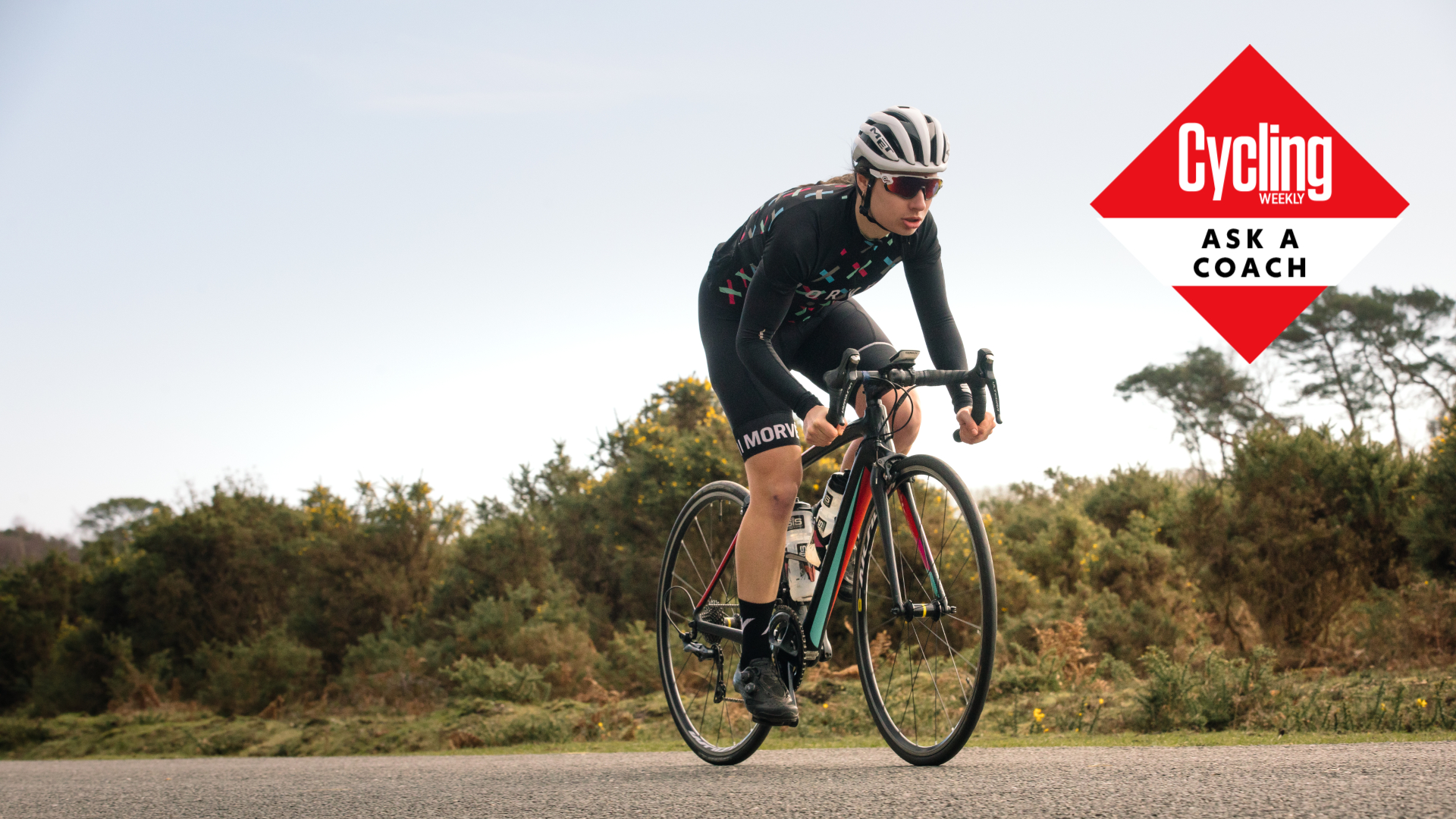

In this age of online training plans and workouts, do you ever find yourself with a burning question you’d like to directly ask a cycling coach? Well, now is your chance to ask away! In this series, we’ll be putting your questions to expert coaches – send them in at anna.abram@futurenet.com.
What do you do if you get stuck in a training rut and your fitness plateaus? This is a situation that lot of us can find ourselves in at some point: no matter what you do in training you simply don’t seem to improve. Luckily, in these circumstances, there are a number of things that you can do.

Sports scientist and coach James Spragg is one of the experts who will be answering your questions in Cycling Weekly's ASK A CYCLING COACH series which comes out every Wednesday. Working both in research and applied settings, he currently runs Intercept Performance Consultancy.
First we need to understand a little about how we adapt to exercise. When we ride, we induce a stimulus on the body; we experience this stimulus as fatigue. Fatigue is a short-term reduction in exercise capacity that is reversible with adequate recovery. The fatigue that we experience after exercise is a stimulus for our bodies to respond and adapt. As we rest, we adapt to exercise and become a little bit stronger. This is known as super-compensation. Super-compensation is what we experience as improvements in form and fitness.
So really the process is quite simply; exercise, induce fatigue, rest and adapt, improve.
Then there is the process of reversibility. Reversibility is whereby the gains you make in training are lost if you don’t continue to exercise; ‘use it or lose it’! If you wait too long after a training session before training again you may have already lost the gains you made via supercompensation and you will be back to square one. Additionally, each time you get stronger you will need a slightly larger training stimulus to induce the same stimulus next time around.
Effective training occurs when adequate time is allowed after each training session for super-compensation to occur, with the next exercise session taking place before those gains are lost via reversibility (as well as the next training stimulus being great enough to induce fatigue!)
When this process is repeated day after day, week after week, month after month, this is when we start to see large gains in performance. Coaches call this process functional over-reaching.
Get The Leadout Newsletter
The latest race content, interviews, features, reviews and expert buying guides, direct to your inbox!
However, as well as ‘functional’ over-reaching there is ‘non-functional’ over-reaching – and this brings us back to athletes experiencing a fitness plateau. Whenever training isn’t resulting in improvements in fitness it is classified as ‘non-functional’ over-reaching – there can be several reasons for this but generally, these can be broken down into two areas: training and recovering.
Training
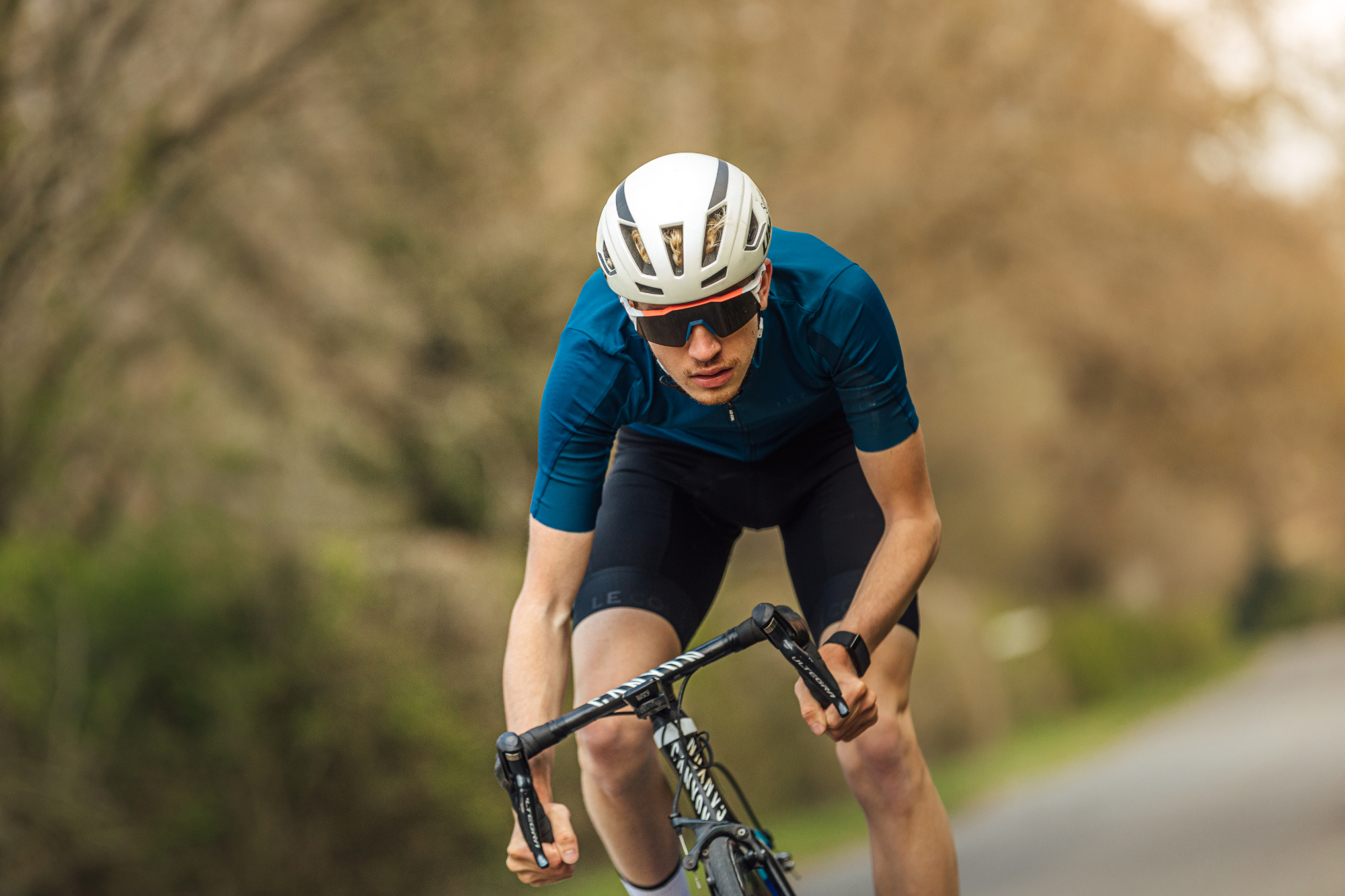
There are two training avenues that might be a factor in non-functional overreaching. The first, and more common of these, is specificity. Whenever we exercise, we induce stress on the body, however, different exercise intensities induce different stressors and as a result, may result in differing adaptations.
One mistake athletes make is sticking with one type of exercise too long, such as only focusing on VO2 max or sweetspot training, or sprinting or building endurance. We only have so much scope for adaptation in any given area at any given time. Once we have maximised these gains it’s time to move on to other areas,otherwise fitness will plateau.
The second issue is the training load. Research suggests that when athletes are exercising less than three times per week, or cramming all their training into a few back-to-back days, it may be that the gains from training are lost before the next session. In this case, the athlete won’t be improving. Likewise, if the overall amount of training isn’t increased as an athlete improves there will come a point whereby it is no longer sufficient to induce fatigue.
Recovering
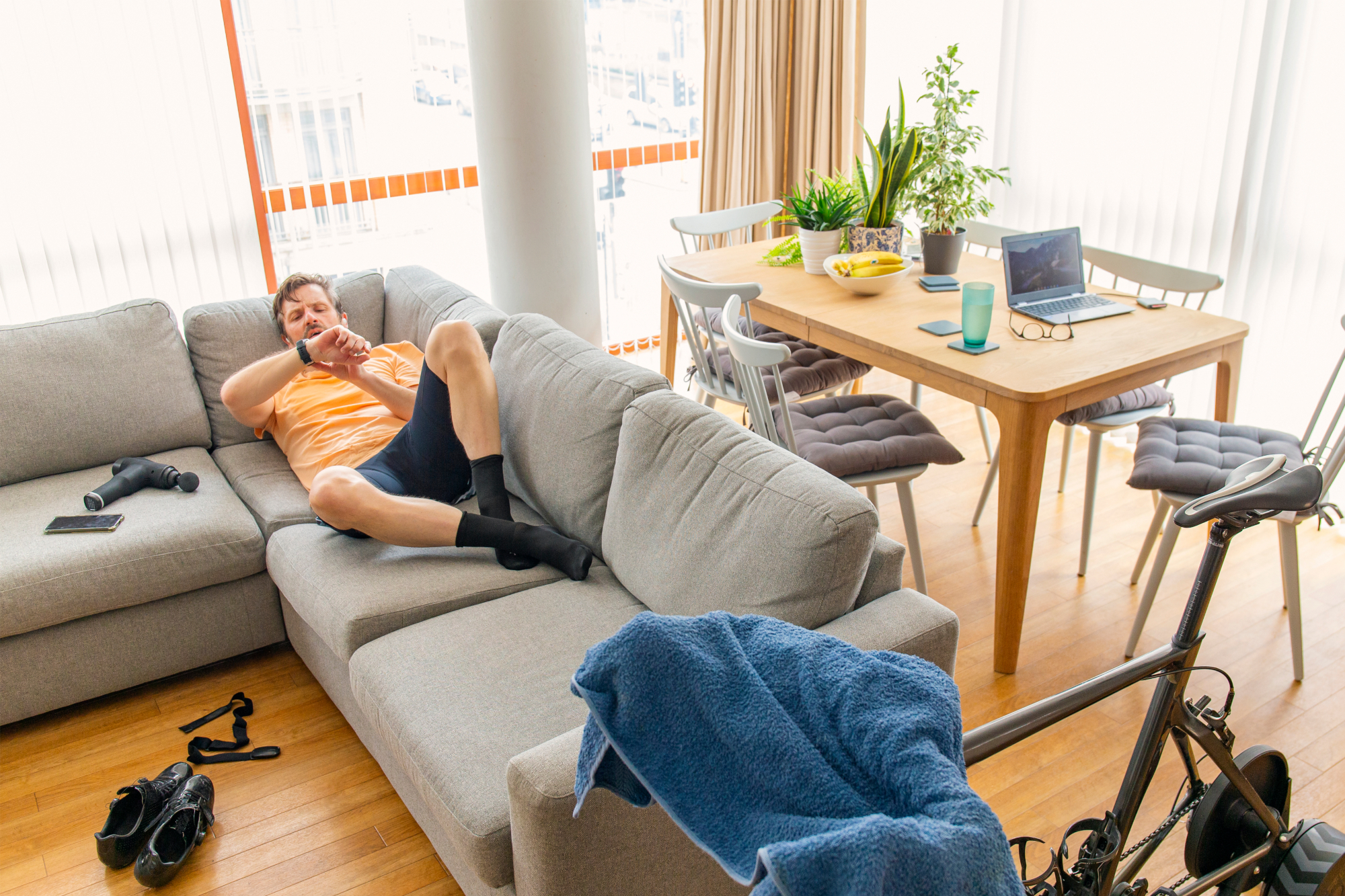
As discussed, adaptations to exercise only occur if adequate rest is taken! Therefore, if you are not getting enough effective rest and recovery between sessions you won’t improve – it’s as simple as that. The mistake I see a lot of athletes making is that they think that all time outside of training is recovery.
However, this couldn’t be further from the truth. Training induces stress on your body; however, it is not the only thing that induces stress on the body; work, family, lack of sleep and poor nutrition are all additional stressors.
Together this is known as the allostatic load – the total amount of stress an athlete is under. If the allostatic load is too great, then the rider simply won’t be able to adapt in the time between training sessions, resulting in a fitness plateau.
In my experience working with athletes of all levels, the vast majority of the time the issue is with athletes not getting enough recovery. Therefore, if you are experiencing a fitness plateau, I would first suggest adding more recovery to your training plan and improving your nutrition and sleep. Secondly, I would recommend switching up the type of training you are doing and only if neither of those worked would I suggest increasing the amount of training you are doing.

Thank you for reading 20 articles this month* Join now for unlimited access
Enjoy your first month for just £1 / $1 / €1
*Read 5 free articles per month without a subscription

Join now for unlimited access
Try first month for just £1 / $1 / €1
James Spragg is a sports scientist and coach, working both in research and applied settings. When not working with athletes James can be found skiing, climbing, cycling or drinking coffee!
Alongside Dan Lorang and Peter Leo, James runs Intercept Performance Consultancy. Over the last 8 years in various roles, as coaches, performance consultants, performance managers, and sports scientists, Dan, James and Peter have played a role in helping athletes achieve more than 10 World Championship titles, several Olympics medals (including a Gold and Silver Medal in Tokyo 2020) and several Top 5 results in some of the biggest sporting events on the planet (Tour de France, Olympics, World and European Championships). Our single focus is on improving performance in all settings.
-
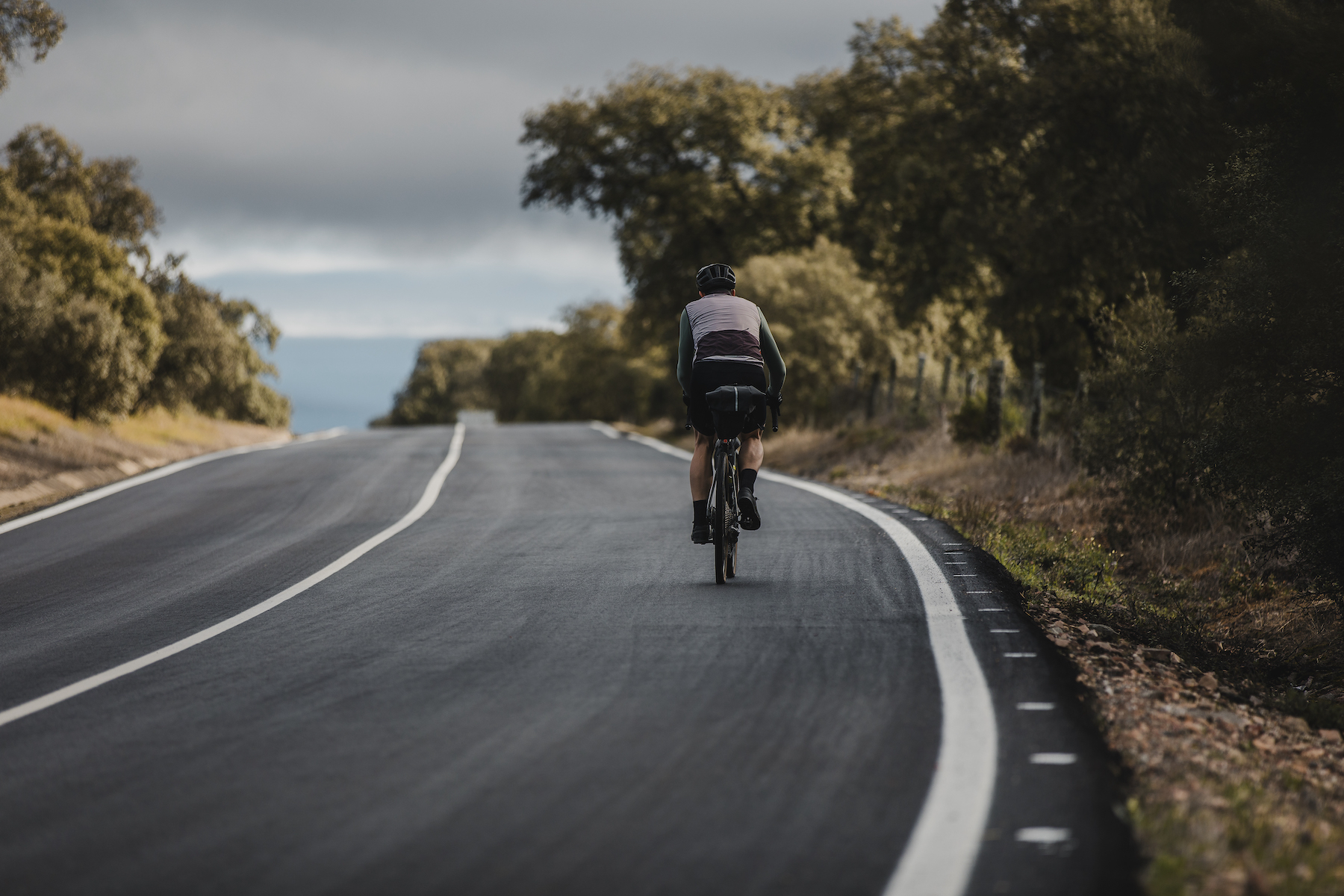 'This is the marriage venue, no?': how one rider ran the whole gamut of hallucinations in a single race
'This is the marriage venue, no?': how one rider ran the whole gamut of hallucinations in a single raceKabir Rachure's first RAAM was a crazy experience in more ways than one, he tells Cycling Weekly's Going Long podcast
By James Shrubsall
-
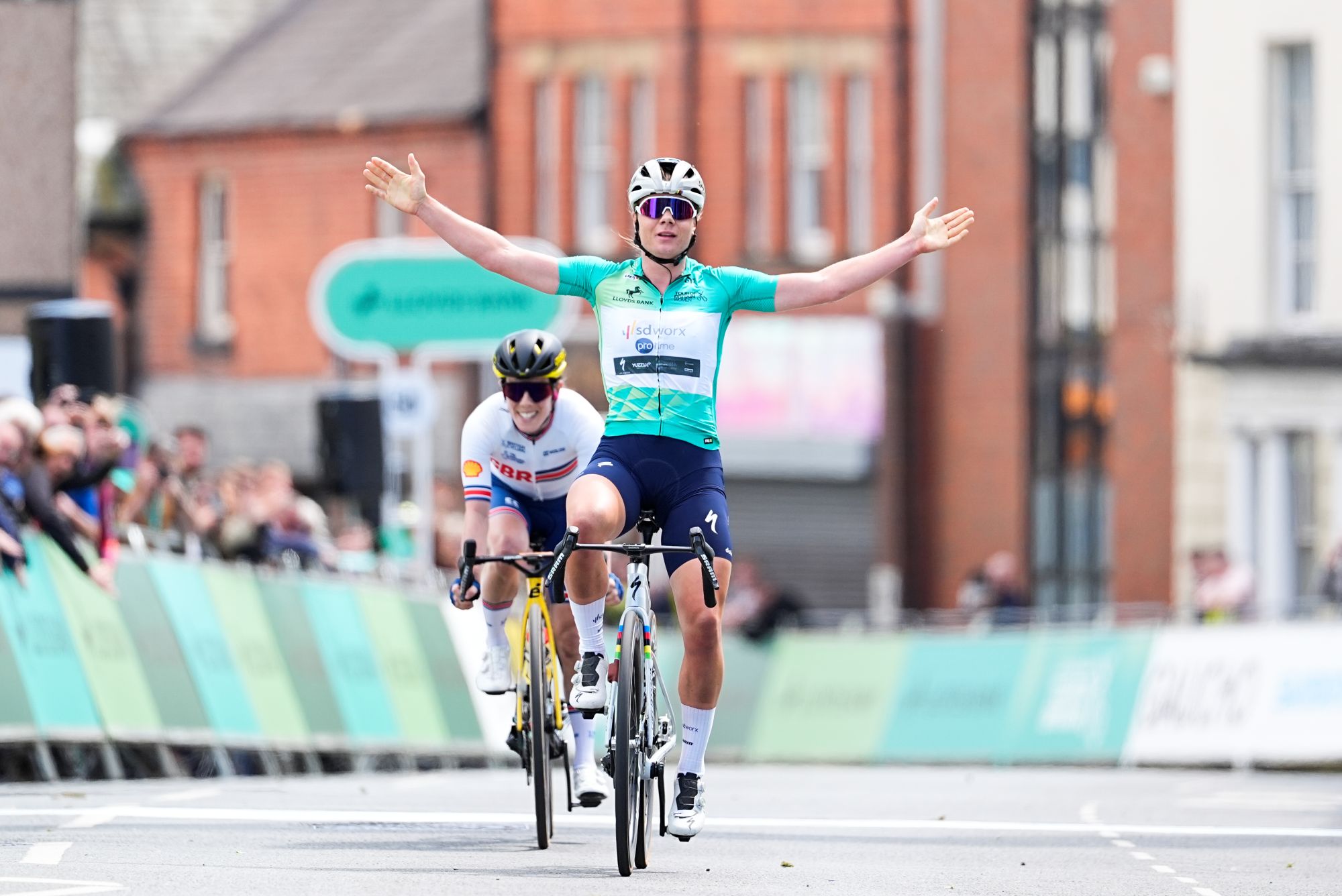 Full Tour of Britain Women route announced, taking place from North Yorkshire to Glasgow
Full Tour of Britain Women route announced, taking place from North Yorkshire to GlasgowBritish Cycling's Women's WorldTour four-stage race will take place in northern England and Scotland
By Tom Thewlis